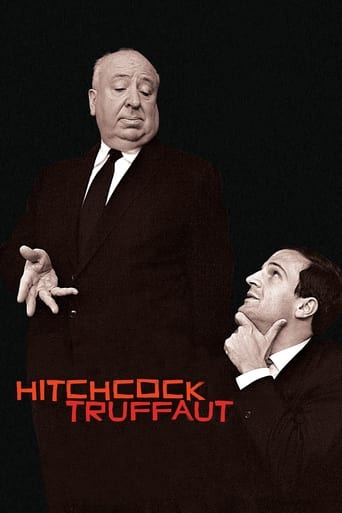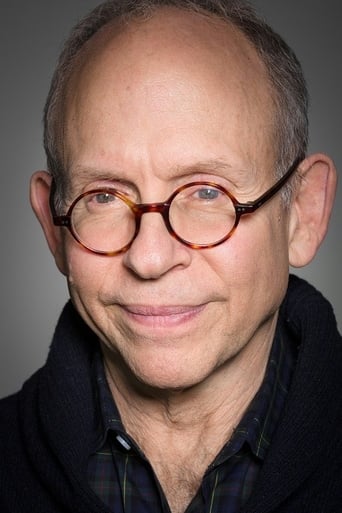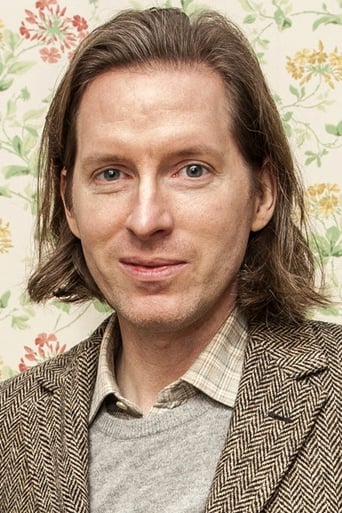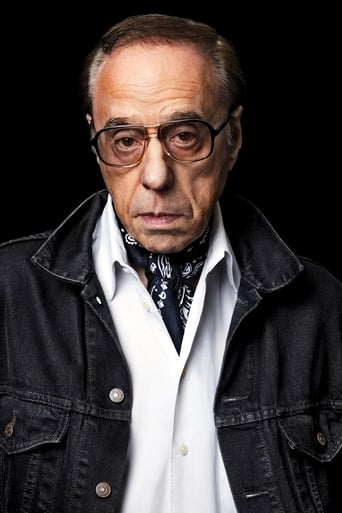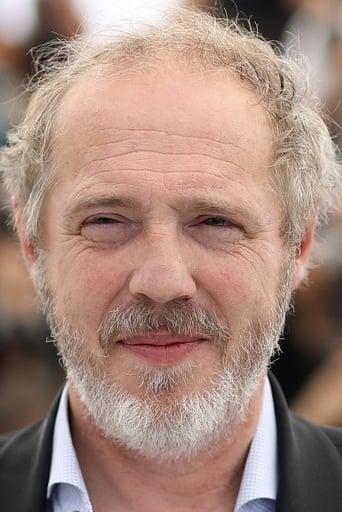Nonureva
Really Surprised!
Supelice
Dreadfully Boring
Portia Hilton
Blistering performances.
Allison Davies
The film never slows down or bores, plunging from one harrowing sequence to the next.
MartinHafer
"Hitchcock/Truffaut" is not a film for everyone. Film students and film nuts might love it but the average viewer will be pretty bored with the material. The material consists of using a series of interviews between Francois Truffaut and Alfred Hitchcock from 1966 in which the French director asked the British director about his craft. Originally, this resulted in a book with transcripts from the meeting but in this film you hear portions of the interview as well as hear from many famous filmmakers as well as see clips from various, mostly Hitchcock, films.To love this documentary, you really need to buy into the central assumption of this film...that Hitchcock was the greatest (at least by 1966) filmmaker ever. It seems that the many directors who participated in this agreed and loved to talk about Hitchcock in almost godlike terms. And, this hero worship seemed to me to be a double-edged sword. Sure, they could talk about the great things he did on film. But, since he was a god, he was perfect and any shortcoming on Hitchcock's part simply wasn't considered. No filmmaker is truly godlike and for me the documentary just seemed to lack real objectivity. For example, they praised "Psycho" again and again...even though a very similar film, the brilliant "Peeping Tom" came out the year before but was seen by few because it was banned. So, in this sense, Hitchcock really wasn't first to make this sort of movie....though this wasn't acknowledged. Overall, worth seeing, perhaps, but not a must-see for me.
Vihren Mitev
We can not overlook this title because of the admiration we feel for these two directors. And when we understand that it comes about also for a book our respect has already risen to the highest possible extent.Documentary filmed tape showing the desire of Truffaut to get acquainted with the great Hitchcock.Ultimately, both directors meet and they develop a friendship. To a large extent this unusual relationship influenced Truffaut in his future work.As analysts of the films of Hitchcock are invited legends in the film business as Scorsese, Linklater and many others. If you're a fan, do not pass by this title.My blog: http://vihrenmitevmovies.blogspot.bg/
Robert J. Maxwell
Not the usual kind of biographical stuff about the celebrity's childhood and how he "rose to prominence" before he "fell from grace." In other words it's not an episode of "Biography." The object of attention is the book, "Cinema According to Hitchcock" by an admirer and fellow director Francois Truffaut, published in 1966.The film is roughly (but only roughly) chronological and the biographical material is limited but covers both Hitchcock and his interviewer. What makes it more interesting than it might be is that Truffaut was about half Hitchcock's age. They came from different traditions -- Hitch from the silents, when everything needed to be spelled out visually, and Truffaut from the French "New Wave" cinema of the early 1960s, when the rules were thrown out the window.Despite their different styles, they never clash. Truffaut is too good natured for that, and Hitch too distantly polite in his British way. Only once, in the book, not in the film, is there any sign of friction, when Truffaut suggests a different way Hitch might have handled a scene and he replies, "It seems you want me to write for an art house audience." Lots of excerpts from Hitch's movies and several from Truffaut's as well. A good deal of attention is paid to cinematic techniques -- the position of the camera, the lighting, the pattern of the images themselves. Some of the talking heads, and Hitchcock himself, come up with implications that to me seem questionable. I can't manage to convince myself that, while waiting for Kim Novack to emerge fully transformed from the bathroom, Jimmy Stewart is "getting an erection." In fact, I can't imagine Jimmy Stewart getting an erection at all.I suspect the program might disappoint some viewers who don't want to listen to the interlocutors making polite jokes. (Twice, Hitch is about to tell an anecdote and asks for the recorder to be turned off.) Nothing in the movie is critical of either Truffaut or Hitchock, who became an alcoholic during his last years.There are photos from the interview and excerpts from the recording, as well as a description of the surprising friendship that developed between the two. I thought it was all fascinating.
noir-23489
The only section missing in the film is a discussion of the MUSIC in Hitchcock films especially the work and career of BERNARD HERMANN! Neither director touched on the scores for VERTIGO, PSYCHO, or THE BRIDE WORE BLACK. Others like WAXMAN and TIOMPKIN were also neglected! Soundtracks are an integral part of both director's work! Shame on you! Also there was no discussion of the score for TORN CURTAIN! Why no Hermann score and a substitute for one by by John Barry? You can write an entire book on film noir music or THE SOUNDS OF DARKNESS. Think about PSYCHO and the "shower scene" without music. It loses its chilling effect. What about James Stewart hanging from a roof gutter in VERTIGO? And that haunting "love theme" in VERTIGO, when Stewart is following Kim Novak in his car and the crescendo of waves breaking against the shore when they finally embrace? I can cite many more moments where music was crucial to a scene in Hitchcock's work, too many to enumerate here. I just had wished the directors and filmmakers would have discussed this important phase of both director's work. Dr. Ronald Schwartz at www.noir1937@aol.com Manhattan
